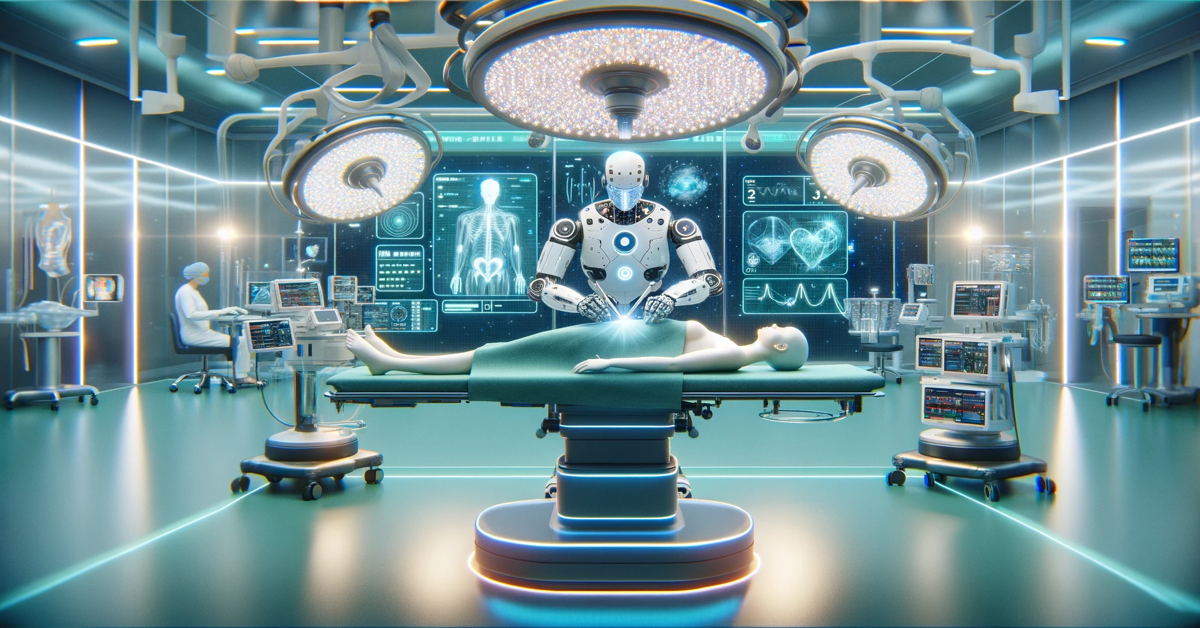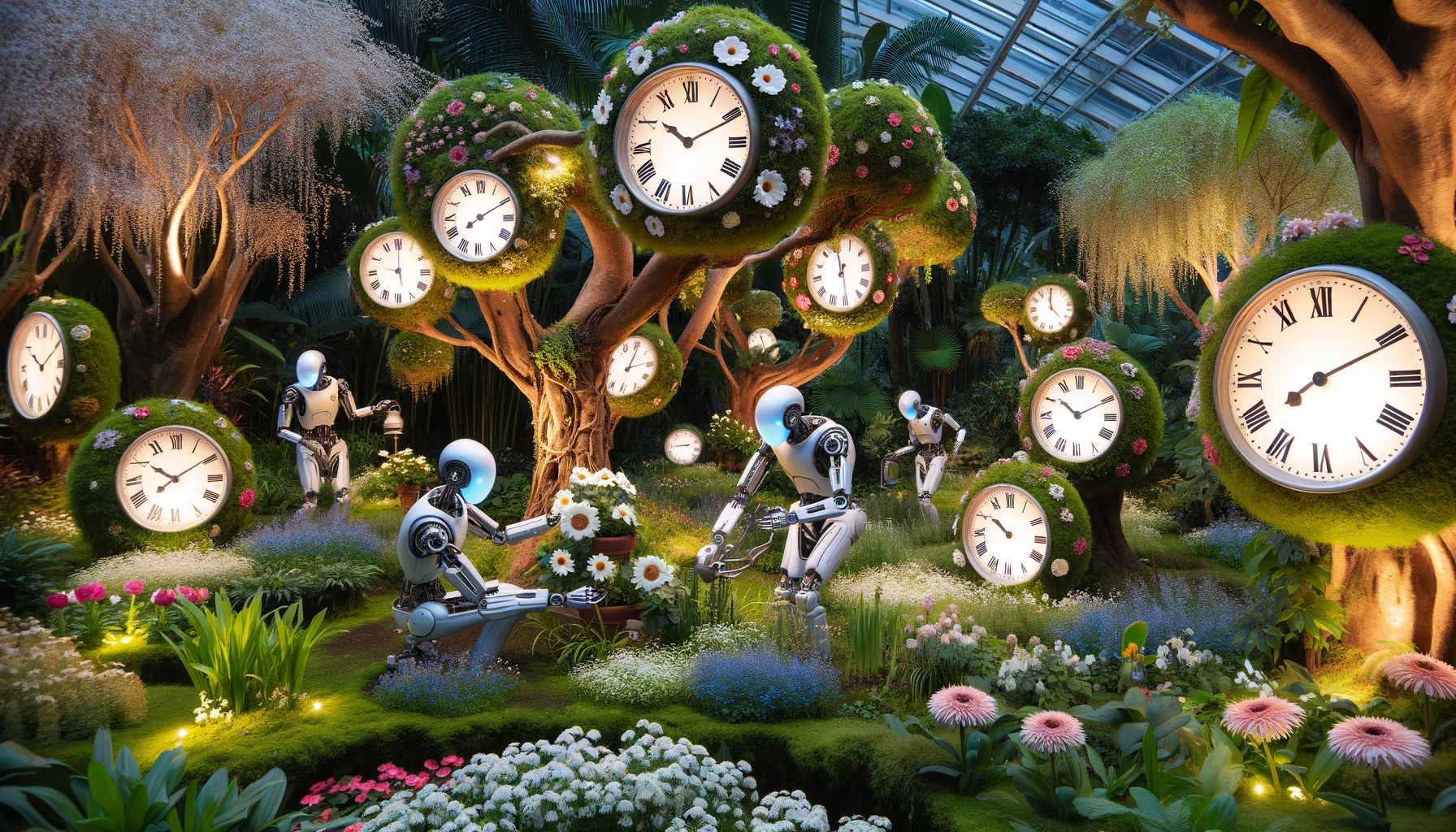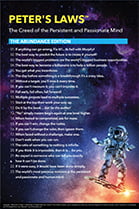
Which industries will face disruption this decade?
For me, the answer is clear: education and healthcare.
Our educational systems are clinging to outdated methods, still “teaching to the test," emphasizing content that was important 30 years ago. Our middle and high schools are failing our kids, and our colleges are becoming less and less relevant.
In the same way, today’s healthcare system isn’t—it’s sickcare. Antiquated and expensive, it supports a massive and bloated bureaucratic system that will ultimately crumble under its own weight.
There is no way that “traditional medicine” survives the coming AI revolution. Did you know that there is a new a medical article appearing at the rate of at least one every 26 seconds? That’s 3,300 articles per day, or more than 1.2 million articles per year!
How many of these articles has your doctor read this morning?
In today’s blog, I’ll explore the coming disruption and reinvention of education and healthcare. (These are also topics that I’ll explore in detail during my upcoming Abundance Summit on March 18 – 21, 2024. After all, on the flip side of disruption are the benefits of dematerialization, demonetization, and democratization—namely abundance for all.)
Let’s dive in…
Disrupting Education...
What happens when the best teachers are AIs? When a virtual simulation of an educational experience is more fun, impactful and engaging than sitting around a 40-year-old classroom?
Now I’m not saying that *everything* will be learned through an AI and VR format, but I am saying that A LOT of it will be... especially visual and complex topics like history and science.
We want our kids to learn, not to conform... to grasp and not regurgitate. AI and VR will allow them to absorb knowledge in their own desired fashion (audio, visual...), rather than in a group-grope (one-size-fits-all) approach.
Better yet, the coming education industry will grow out of seeds planted by today’s video game industry.
In 2022, the revenue from the worldwide gaming market was estimated at almost $347 billion, with the mobile gaming market generating an estimated $248 billion of the total.
In comparison, the global K-12 private education market was valued at $2.08 trillion in 2020, with revenues expected to reach around $2.94 trillion by the end of 2026.
Guess what, when the video gaming industry wakes up and realizes that the private K-12 education market is 10X bigger, THE GAMING INDUSTRY WILL EAT OUR EDUCATIONAL SYSTEM FOR LUNCH.
Playing games is fun, even addictive, and the industry has a lot to teach our educational establishments.
For example, in K-12 education when you start a new class, you begin with a score of 100% and every time you get something wrong, your class averages go down...
In a video game, you start every game with a score of zero, and every time you get something right, your score goes up.
Just imagine which of these is most motivating for your kids?
Soon, we will also take gaming out of the traditional environment and move it into our homes and everyday lives through the use of smart toys, a global market that is expected to grow from $14 billion in 2023 to over $40 billion by 2032.
Smart toys, powered by AI, can learn your child’s name, react to triggers, learn from interactions, and choose the way they behave with your child in accordance with your educational objectives.
Ultimately, they will allow kids to learn and play in new ways. Here are just a few examples of AI-powered toys for kids that are available today:
Moxie by Embodied Robotics is an AI-enabled robot that knows your kid’s name and face, and supports social-emotional growth in kids through fun activities and creative play. The New York Times said about Moxie, “Moxie’s eyes can move to console you for the loss of your dog, and it can smile to pump you up for school.” It’s a robot friend that teaches life skills, improving social-emotional development through play. With hundreds of interactive activities from brain twisters to dance games, Moxie’s library is constantly growing, and whether your kids are into reptiles or rocks, Moxie is ready to chat! As Wired magazine proclaimed, “Moxie is the robot pal you dreamed of as a kid.” Having played with Moxie along with my own children, I was blown away by how life-like and engaging Moxie’s AI made our interactions.
Artie 3000 is a programmable coding robot that draws. It comes with a variety of games and can be programmed by kids to draw a range of shapes and objects. And Talking Tom Cat is an AI-powered robot that records, responds to questions, sings songs, and much more. It’s easy to use and can repeat recordings back to the user.
And these are just the early days. For example, Allan Wong, CEO and Chairman of toymaker VTech Holdings, described in a June 2023 interview with the Financial Times his vision for future features: “AI will generate stories customized for the kid rather than having you reading from a book … You can incorporate not only the kid’s name, but the kid’s daily activities. It knows which school you go to, and who your friends are.”
The Disrupt of Healthcare...
The home healthcare market was valued at over $330 billion in 2021 and is projected to nearly double to $635 billion by 2030. As we move healthcare out of the hospital and the doctor’s office and into the home, AI will play a huge role in that growth.
Let’s begin by understanding that the human body is incredibly good at *HIDING DISEASE*... Do you really know what’s going on inside your body? You might feel okay, but do you KNOW if you’re okay? The problem with a lot of today’s healthcare (i.e., sickcare) is that it is reactive and retrospective, finding disease too late, rather than at the earliest moments when it is easiest to repair and avert expensive and sometimes deadly results.
Here are four ways in which AI will improve the quality of home healthcare in the decade ahead, and prevent disease by making medicine personalized and proactive:
First, embedded AI sensors on your body, in your body and in your furniture will enable biometric-based triggers. AI-based sensors will be used to track your biometrics 24/7—even when you’re resting or sleeping. Everything from your heart rate, body temperature and blood glucose levels, to the sound of your cough, quality of your sleep and the number of steps you take every day. One of my companies, Fountain Life, will soon be rolling out Fountain@Home as an AI-enabled platform that integrates all wearables, remote blood draws, telemedicine and occasional imaging uploads at Fountain Life Centers. Another company I co-founded with Tony Robbins, called MyLifeForce, today offers quarterly blood draws and remote telemedicine with access to a personalized supplement, medicine, and hormone regimen.
Over the coming decade, biometric data aggregation will disappear into the background of everyday life.
Second, diet monitoring through AI apps and devices will help you to maintain your willpower and make smart food decisions. For example, AI-powered imaging software such as Passio.ai, could offer real-time food recognition that dissuades you or encourages you to eat certain foods based upon your nutrition objectives.
Third, AI voice assistants will enable updates and just-in-time information. Near-term versions of today’s voice assistants (e.g., Siri, Alexa, and Google Assistant) will remind you to take your medicine, check your blood pressure, create and remember your medical appointments, or seek information about the nearest physician or symptoms for a disease. In the long term, your AI assistant will become your diagnostician, reviewing a constant flow of medical data coming off your wearables, detecting any concerning conditions at the earliest possible point.
Finally, AI will be built into healthcare insurance. One of the key ways that AI is transforming healthcare is through insurtech. To provide customers (both potential and existing) better coverage, companies are using AI-based machine learning programs to collect data from wearable devices and previous patient records. The future of insurance will focus on “advanced testing” (such as Fountain Health Solutions) in order to prevent disease in advance, rather than paying you after you’re sick.
By tracking eating habits, fitness levels, sleeping patterns and more using devices with sensors, insurtech will not only offer better coverage, but also mitigate risks for both the customer and the insurer.
Why This Matters
Education and healthcare represent two industries that haven’t fundamentally changed in decades.
But AI, especially when combined with other exponential tech like robotics and VR, promises to revolutionize how we treat patients and serve students.
Given how fast everything is changing, it’s not hard to understand that this technology can scare people, making many desire “the good old days.” Some fear that the speed of change (i.e., the rate of disruption) will cause people to revolt. The only prescription for such fear will be knowledge—this means giving people access to high-quality education and helping them believe that they have a future that is compelling and abundant.
AI will ultimately dematerialize, demonetize, and democratize the world’s best education for your child and for all adults—giving all 8 billion+ of us access to the best education independent of where anyone lives or how much wealth they have.
And at the same time, AI is also drastically changing the face of medicine by analyzing massive quantities of data to uncover patterns and insights that can save our lives.
In the not-too-distant future, the best diagnosticians in the world will be AIs, and the best surgeons will be robots driven by AIs.
Our next blog, the final one covering this particular Metatrend, will look at what Embedded Intelligence means for global abundance.
I wanted to take a second to tell you about a company I'm personally invested in and that is a part of my personal health optimization: Seed Health, a microbiome science company that is doing incredible research (which you’ll hear more about from me and on the podcast in the coming months). Seed is most known for their innovations and clinical research in probiotics—especially DS-01®, which I take and believe is the best probiotic available.
Unlike our genome, our gut microbiome is one of the most important levers of health given its connectivity to almost every biological function and organ system. How can you optimize your gut health? In addition to diet and other lifestyle choices, here’s what I do:
Every day, I take two capsules of Seed’s DS-01® Daily Synbiotic: a broad spectrum 2-in-1 probiotic and prebiotic formulated with 24 genetically distinct clinically- and scientifically-studied probiotic strains and a polyphenol-based prebiotic.
Developed from a deep understanding of the complex interactions within the microbiome, DS-01® confers benefits in and beyond the gut. This novel synbiotic preserves ecosystem function, fortifies the gut barrier, promotes healthy regularity, reinforces an optimal gut-skin axis, promotes cardiovascular health, and supports healthy immunological responses in the GI tract.
The specific prebiotic is sourced from the skin of Indian pomegranate and has also been clinically validated to support healthy aging, including the reduction of aging markers like the appearance of wrinkles. Unlike most fiber-based prebiotics, Seed’s is non-fermenting which makes it gentler on the stomach and tolerable for a FODMAP diet.
In contrast with most probiotics, DS-01® is engineered to survive with Seed’s patented capsule-in-capsule ViaCap® technology that optimizes viability and delivers a precision release to the colon, where it matters most. This technology also ensures stability, so there’s no refrigeration required.
Known for their renowned scientists in the field of microbiome and probiotics, Seed’s scientific rigor and ongoing research have set them apart from others. DS-01® strains have been clinically studied in over 20 clinical and mechanistic studies. Two clinical trials evaluating the DS-01® formulation have recently been completed: one assessing the impact of DS-01® on patients with Irritable Bowel Syndrome (IBS) under Investigational New Drug authorization from the FDA; and another evaluating the effects of DS-01® on the gut microbiota during and after antibiotic usage (under Health Canada authorization). This new data is anticipated to be published in high-impact scientific journals in the coming six months.
I value Seed's scientific rigor and the company's work. This is why I believe DS-01® is so effective and has become the probiotic of choice not just for me, but for so many other people I respect.
As part of my mission to help my community optimize their health, we’ve worked with Seed to create a code for our readers. Use code PETER25 for 25% off your first month of Seed’s DS-01®.
Learn More About Seed's DS-01®
I discuss the latest advances in biotech and longevity science on my podcast. Here’s a conversation I recently enjoyed:
A Statement From Peter:
My goal with this newsletter is to inspire leaders to play BIG. If that’s you, thank you for being here. If you know someone who can use this, please share it. Together, we can uplift humanity.
Topics: Abundance Entrepreneurship Abundance 360







